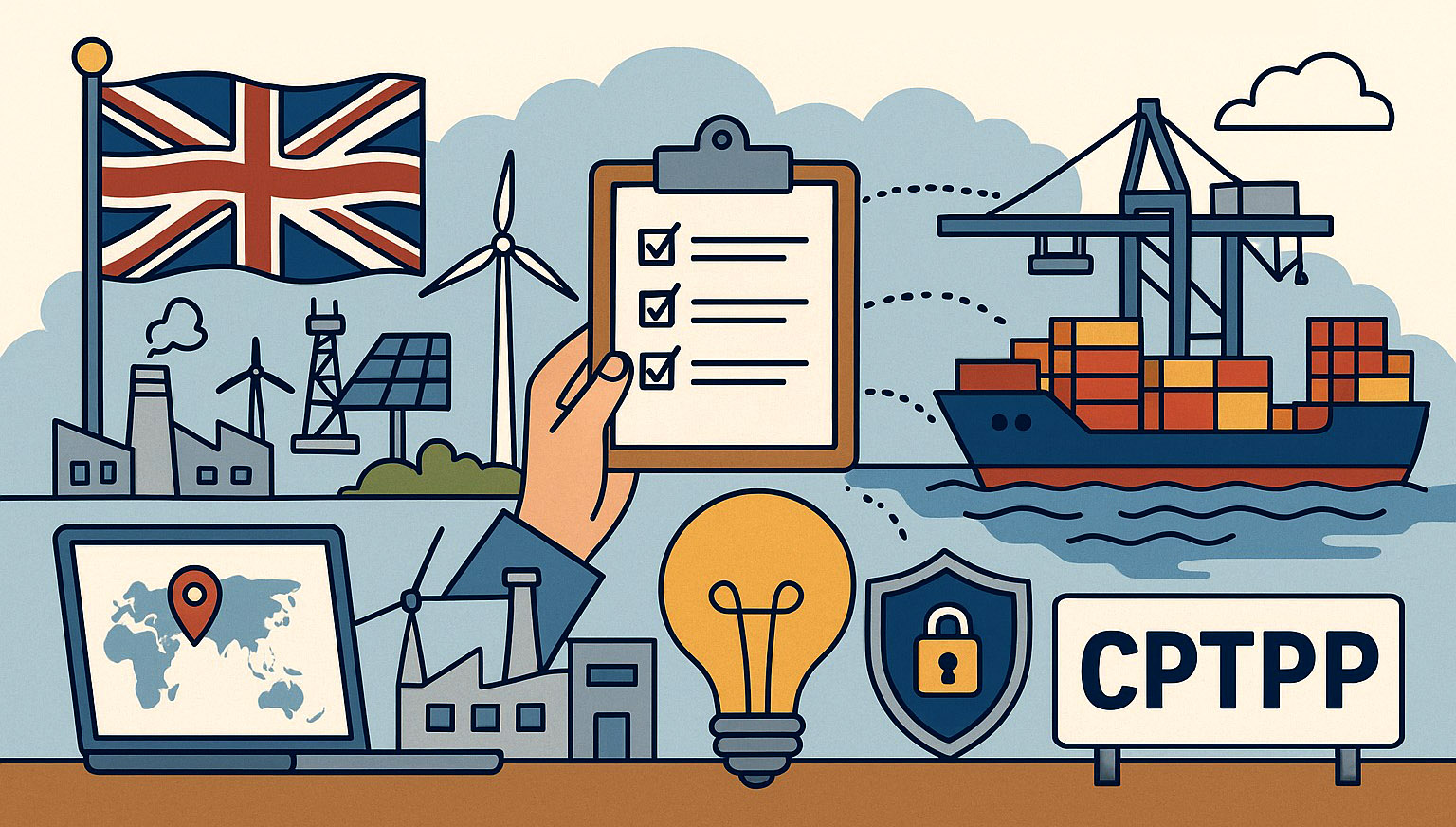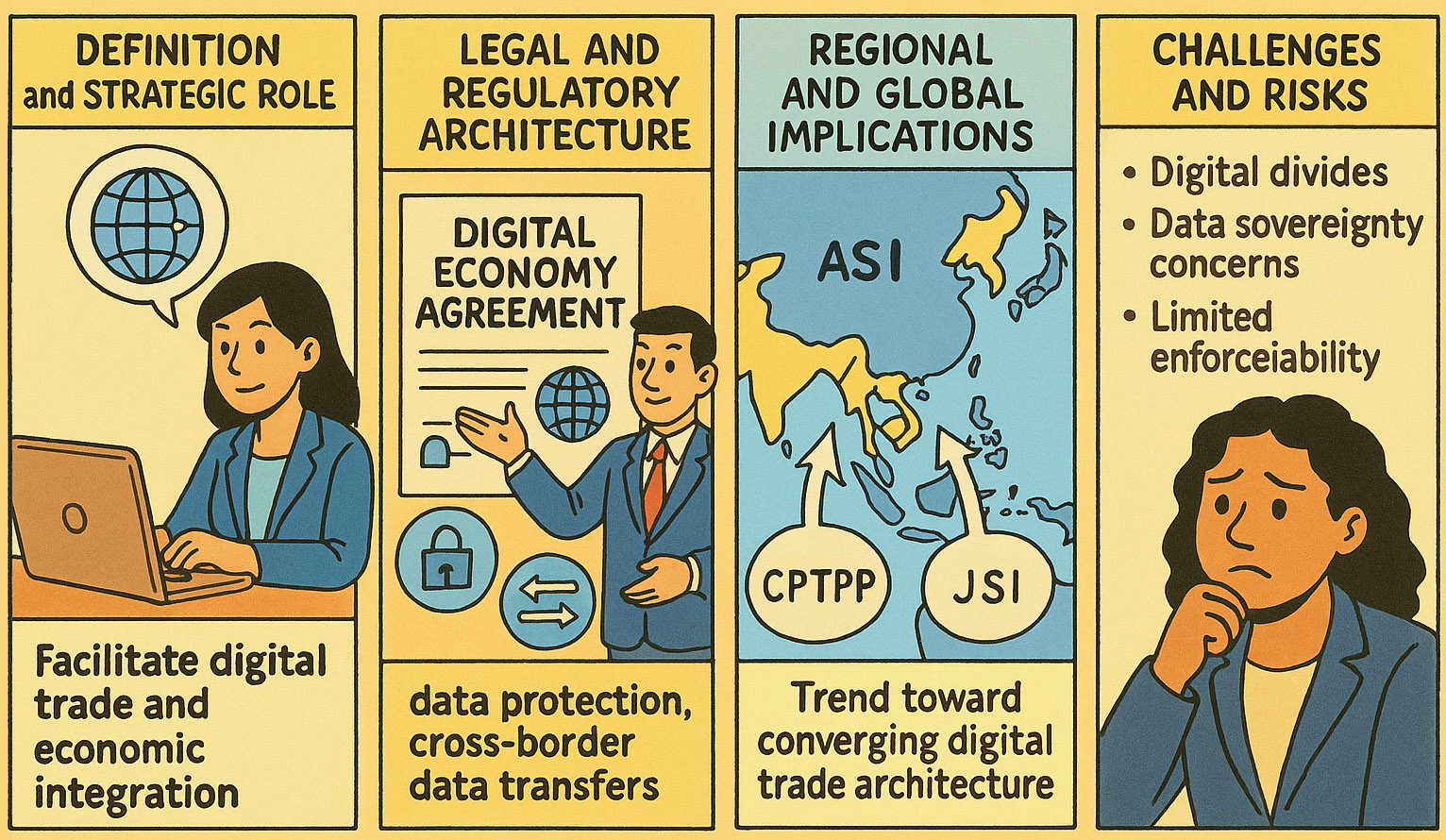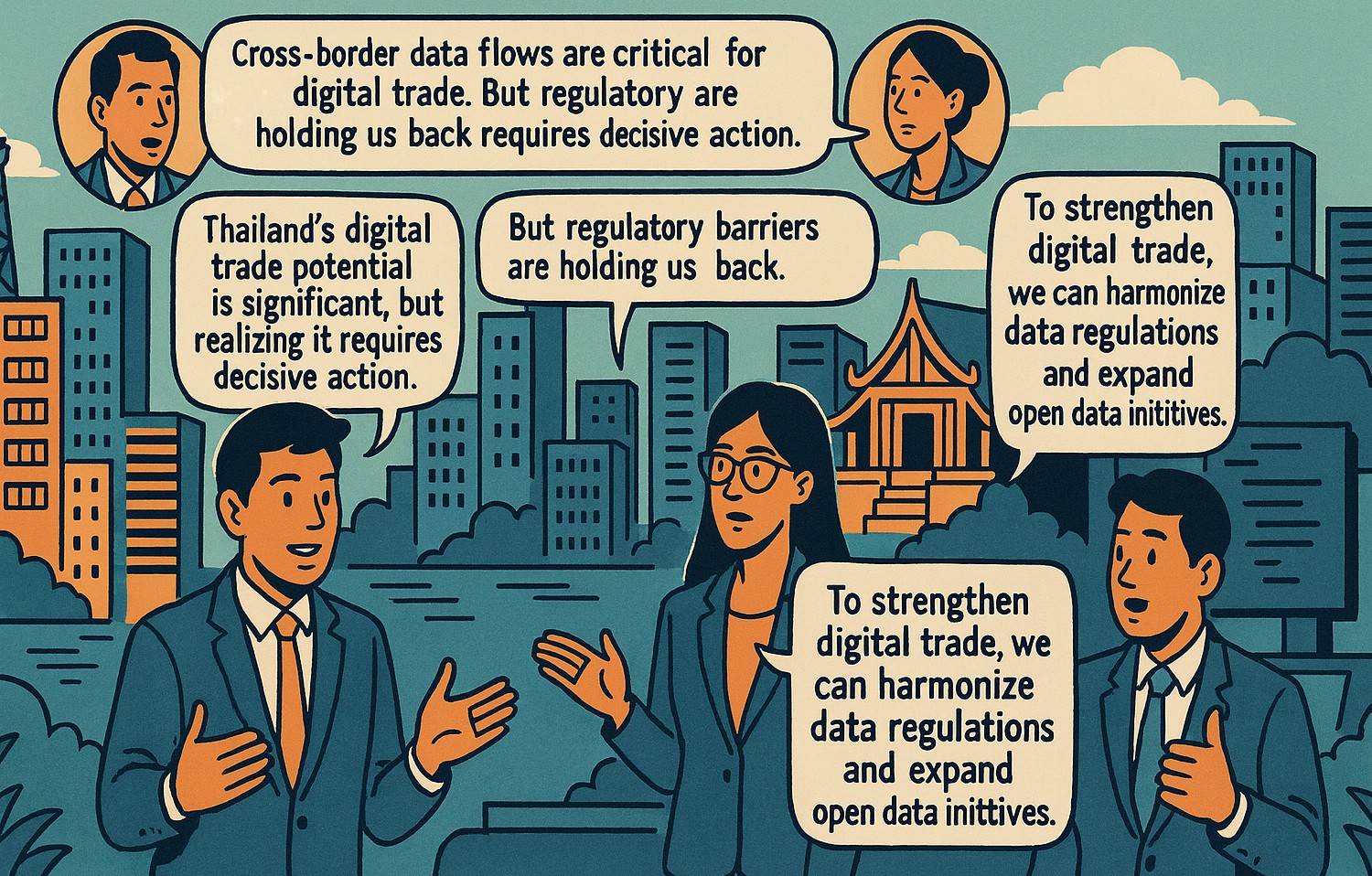cyber security
-
Digital trade is evolving rapidly, and Distributed Ledger Technology (DLT) is increasingly presented as a solution for improving transparency, efficiency, and trust in commercial transactions. From trade documents and supply chains to payments and digital assets, DLT is often promoted as a transformative infrastructure for modern trade systems. However, technology alone does not create legal Read more
-
Digital Finance in Europe: Technology, Artificial Intelligence and Future Perspectives

The volume “Digital Finance in the EU: Navigating New Technological Trends and the AI Revolution”, published in cooperation between the European University Institute and the European Commission, explores how digitalisation and the rapid rise of artificial intelligence (AI) are reshaping the European financial sector. This is not just a handbook for supervisory authorities but a Read more
-
Canada and the European Union (EU) are preparing to negotiate a Digital Trade Agreement (DTA) that could set new global standards for data governance, privacy, and innovation. While the Comprehensive Economic and Trade Agreement (CETA) laid the foundation for a modern transatlantic partnership, it did not fully address the digital economy’s complex dynamics. The upcoming Read more
-
The World Trade Report 2025: Making Trade and AI Work Together to the Benefit of All, published by the World Trade Organization (WTO), explores one of the most pressing questions of our time: how artificial intelligence (AI) is reshaping international trade and whether it can serve as a driver of inclusive growth. The report highlights Read more
-
Thailand stands at a pivotal moment in its digital transformation journey. With ambitions to reach high-income status by 2027, the country views the digital economy as a critical driver of growth and resilience. Within this broader ambition, digital trade—the exchange of goods and services enabled by cross-border data flows—has emerged as both an opportunity and Read more
-
The UK’s Trade Strategy 2025: A Blueprint for Resilient Growth in a Changing World

In June 2025, the UK government unveiled its new Trade Strategy, a comprehensive plan to steer the nation through an increasingly turbulent global trading environment. In an era defined by geopolitical realignments, rising protectionism, and rapid technological change, this strategy marks a decisive shift toward a more agile, resilient, and pragmatic approach to international trade. Read more
-
EU International Digital Strategy: Summary and Recommendations for Businesses and Governments

On 5 June 2025, the European Commission and the EU High Representative unveiled a new International Digital Strategy – a joint vision guiding the EU’s external digital policy. This strategy positions the EU as a stable and reliable partner, open to digital cooperation in a challenging geopolitical landscape. It aims to boost the EU’s competitiveness Read more
-
T20 South Africa’s High-Level Recommendations to the G20: A Blueprint for Global Transformation

The T20 South Africa, acting as the official think tank engagement group of the G20, has released its High-Level Recommendations Communiqué ahead of the G20 Summit hosted by South Africa. This comprehensive document outlines critical policy directions aimed at tackling pressing global challenges, with a strong emphasis on amplifying the voices of Africa and the Read more
-
Europe’s Single Market Strategy: Building a Simple, Seamless, and Strong Economic Home in an Uncertain World

In a time of growing geopolitical tensions, economic uncertainty, and global competition, the European Single Market remains one of the EU’s greatest achievements and most powerful tools for ensuring prosperity, stability, and resilience. With an impressive €18 trillion GDP, representing nearly 18% of the global economy, the Single Market serves as the backbone of Europe’s Read more
-
Digital Economy Agreements in Asia and the Pacific: Strategic Insights and Emerging Trends

The Asian Development Bank (ADB) publication “Digital Economy Agreements in Asia and the Pacific” explores how countries across the region are navigating the rapid transformation of trade in the digital era. Digital Economy Agreements (DEAs) are becoming critical frameworks for fostering cross-border digital trade, ensuring regulatory coherence, and promoting economic integration in a landscape increasingly Read more




